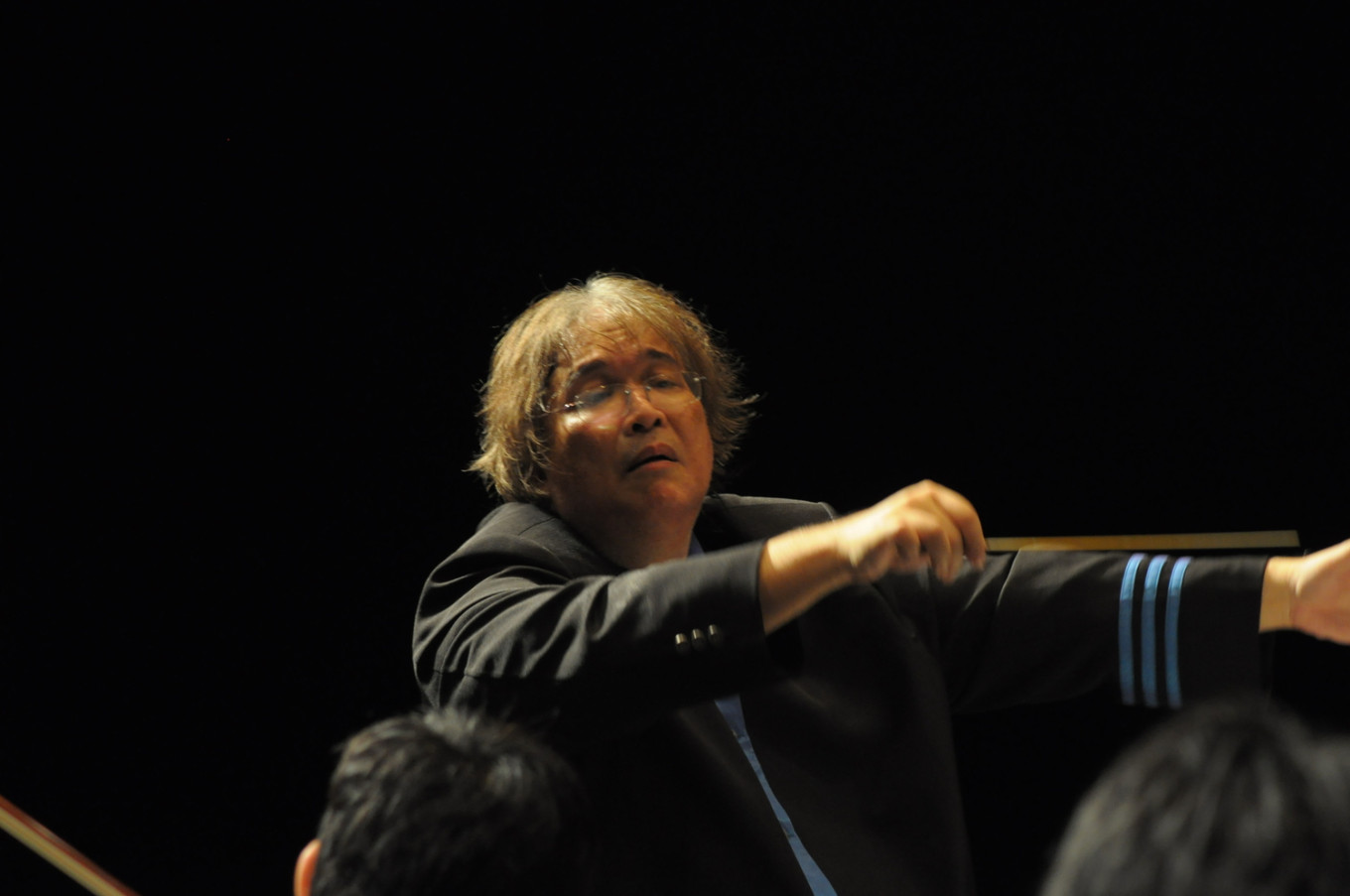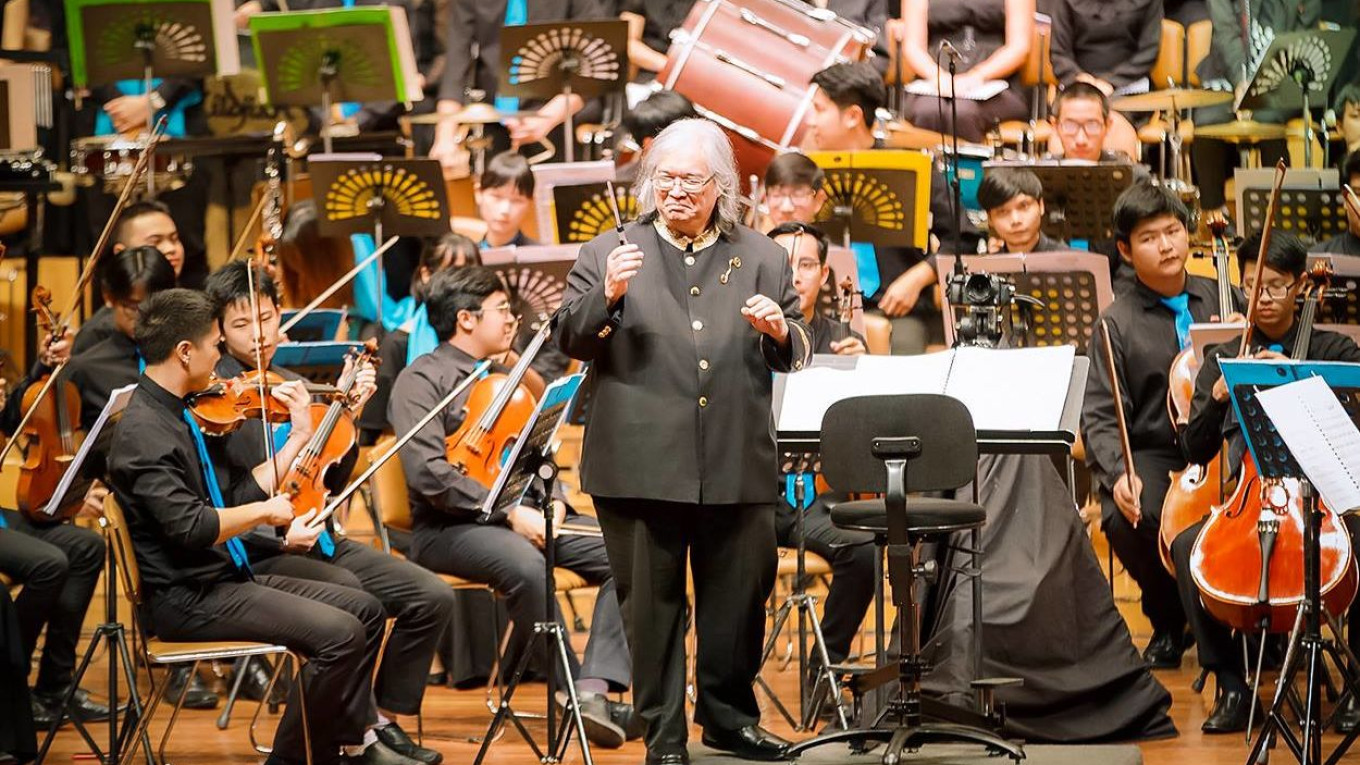Although Russian culture has not been cancelled around the world, there have been disruptions in schedules and repertories as venues and event organizers were concerned that hosting Russians artists would be perceived as condoning or endorsing actions contrary to their values.
Non-Russian symphony orchestras dedicated to preserving classical masterpieces are also facing a dilemma. While the works of Russian composers like Tchaikovsky, Prokofiev, and Shostakovich are cornerstones of their repertory, in some places the orchestra leaders worry about a backlash. On the other hand, they don't want to sacrifice artistic integrity.
But one country that welcomes Russian music and musicians is Thailand.
In recent months the Leonid Yakobson Ballet Theater brought to Thailand Pyotr Tchaikovsky’s "Swan Lake" and "The Nutcracker." Accompanying the performances was the Royal Symphony Orchestra of Thailand conducted by Valery Ovsyanikov.
Thailand also hosted the second international tour of Igor Butman's Jazz Quintet with concerts in Bangkok, Hua Hin, and Chiang Mai. Their repertory included the jazz composition "H.M. Blues" written by King Bhumibol Adulyadej the Great (Rama IX), who played the saxophone and contributed to the popularity of jazz in Thailand. The demand for tickets was so high that the organizers broadcast the concerts on the internet to keep would-be concert-goers happy.
The relatively new Siam Sinfonietta also includes Russian classical composers in its repertory. The orchestra of young Thai musicians founded in 2010 by the Thai-American composer Somtow Sucharitkul and the Bangkok Opera Foundation.
Somtow Sucharitkul, the artistic director of the Siam Sinfonietta, was educated at Eton and Cambridge and gained a reputation in the 1970s as a revolutionary composer who pioneered the fusion of Thai and Western instruments. He is also a well-known author of science fiction, fantasy and horror fiction. Recently he served as a musical consultant on Todd Field’s film "Tar," starring Cate Blanchett in the role of the chief conductor.
Russian classical music became a permanent part of his orchestra's repertory almost by accident. “During the Covid epidemic the entire Siam Sinfonietta was placed in quarantine after touring in Germany. Faced with the choice of staying in a Bangkok hospital or retreating to a hotel in Phuket, we opted for the Laguna Phuket resort and found ourselves with the entire island at our disposal. In exchange for room and board, we performed. To our surprise, 75% of the audience were members of the local Russian community… A few months later, we returned to Phuket on Russian Orthodox Christmas to perform again. During this concert I introduced some pieces from "Eugene Onegin" accompanied by a wonderful American performer who sang Tatyana’s role fluently in Russian.”

Somtow said that the concert was so well-received they continued to expand it. The Siam Sinfonietta made history by becoming the first orchestra to perform Stravinsky's "The Rite of Spring" and excerpts from "Petrushka" in Thailand.
Siam Sinfonietta has earned a reputation on the local music scene as the most experimental and innovative collective of musicians, in part thanks to Somtow’s idea of performing all of Tchaikovsky’s symphonies. They even included the 6th Symphony, which is neither easy nor particularly popular, and is rarely performed in Thailand.
While the audience for classical music in Thailand is smaller than in Europe, the demographic attending classical concerts differs significantly. In Europe, classical music is primarily appreciated by older generations, whereas in Thailand, it is the younger crowd who frequent concerts.
"With some of these works, my musicians feel quite at home", continues Somtow. "For example, we performed Shostakovich's ‘Symphony No. 9’, which, as you may know, was written to celebrate victory over the Nazis but was banned by Stalin. It's that kind of music that seems light on the surface but carries tunes of protest within. I believe my young musicians resonate with this; they prefer to maintain a calm exterior while harboring a rebellious spirit inside. Some of this music may outwardly praise the government while secretly condemning it underneath. Art has always contained elements of subversion."
A Message from The Moscow Times:
Dear readers,
We are facing unprecedented challenges. Russia's Prosecutor General's Office has designated The Moscow Times as an "undesirable" organization, criminalizing our work and putting our staff at risk of prosecution. This follows our earlier unjust labeling as a "foreign agent."
These actions are direct attempts to silence independent journalism in Russia. The authorities claim our work "discredits the decisions of the Russian leadership." We see things differently: we strive to provide accurate, unbiased reporting on Russia.
We, the journalists of The Moscow Times, refuse to be silenced. But to continue our work, we need your help.
Your support, no matter how small, makes a world of difference. If you can, please support us monthly starting from just $2. It's quick to set up, and every contribution makes a significant impact.
By supporting The Moscow Times, you're defending open, independent journalism in the face of repression. Thank you for standing with us.
Remind me later.







